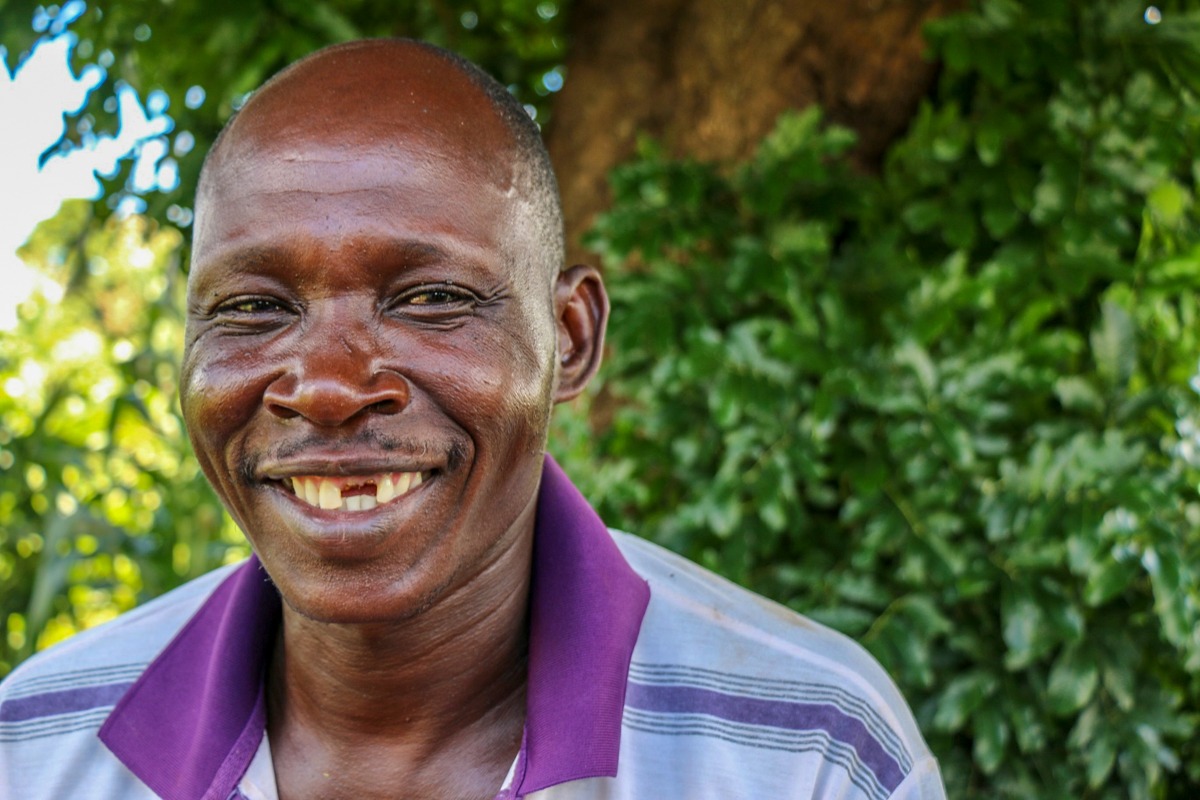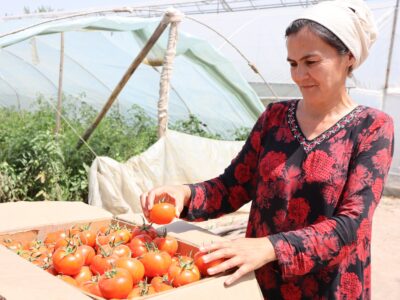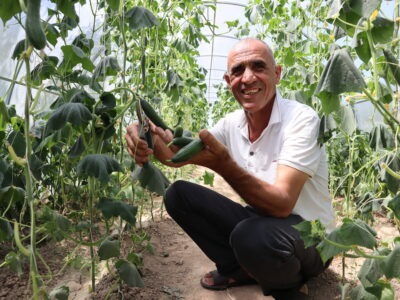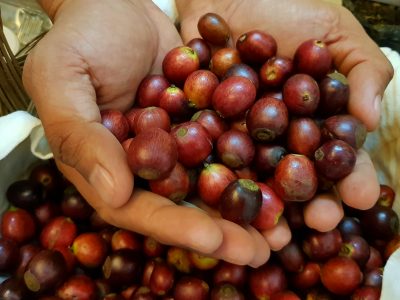
Roughly 80 kilometers outside of Maputo, Mozambique’s capital city, smallholder farmers like Jaime Alberto Tila are looking for ways to ensure the country’s growing population has enough food. Jaime is one of 40 business owners contributing to food security and the development of the horticultural sector through the Livelihoods, Empowerment, and Development (LEAD) project, funded by BHP Billiton Sustainable Communities.
This year, Jaime realized his goal of building a nursery to grow cabbage, tomato, cucumber, and pepper seedlings to support horticulture in the area. The LEAD project co-financed the initial structure with Jaime, who personally contributed 30 percent toward the startup cost of establishing his nursery.
Currently, his nursery is growing 43,000 tomato, cabbage and other vegetable seedlings for 12 different clients. On average, Jaime sells 30,000 seedlings per month for MZN 1.70 each with a conservative 30 percent profit margin built into the cost. At this rate, he generates about MZN 15,000 (over USD 200) monthly. With demand on the rise, Jaime expects his sales and revenue will only increase in the coming years.
Local farmers are beginning to understand the value and significant return of purchasing horticultural seedlings from nursery operators like Jaime. Nurseries provide seedlings with a stable and protected environment for their initial development and growth. This means they produce a larger quantity of seedlings that are also heartier and more resilient.
“Under the shade of a nursery, seedlings have a defense against the heat; they can’t survive without this. You just can’t get the same quantity of seedlings to grow and survive when planted directly in the field. Now, thanks to our nurseries, we are able to grow horticulture throughout the year.” — Jaime Alberto Tila, a nursery owner supported by the LEAD project
As a new business owner, Jaime understands that the success of his customers is also his success as a vendor. Throughout the week, he visits customers and provides them with detailed instructions on how to properly care for seedlings to ensure the transplanted seedlings thrive in their fields. During these visits, Jaime also instructs customers on proper fertilizer application, pesticide use, and irrigation methods to minimize risk during transplanting. He also shares his lessons learned from participating in the LEAD project’s farmer field school training.
Some of Jaime’s customers come from far away to purchase seedlings from his nursery because of the high quality, attention to detail, and desire for their continued success that Jaime offers. He has built a loyal customer base, solidifying strong business relationships and creating a network that will catapult his business to future growth.
With the expansion of his nursery on the horizon, Jaime is pursuing a loan to grow his seedling business. “I’m also raising some chickens and have invested in other plots as well,” he says. Through this opportunity, Jaime has learned how to scale his dreams and better prepare for not only his family’s future but also the future of Mozambique.
“I have children in school,” he says. “The important thing is for my children to study so that they can become successful and experienced farmers — not just farmers with field experience, but farmers who can think critically and apply technical knowledge to the trade.”






